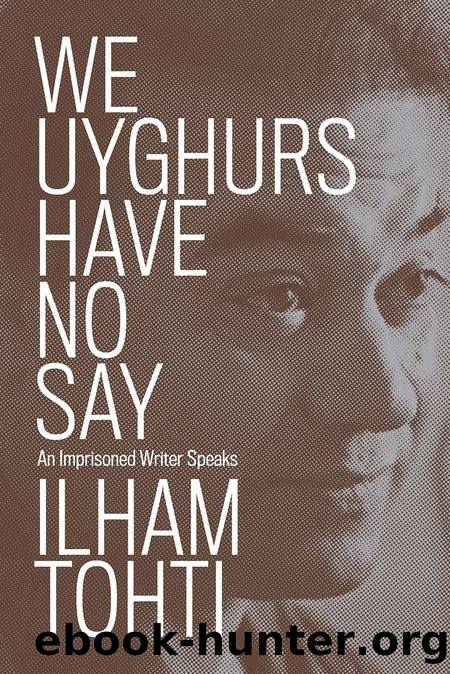We Uyghurs Have No Say by Ilham Tohti

Author:Ilham Tohti
Language: eng
Format: epub
Publisher: Verso Books
VI. The Xinjiang Production and Construction Corps
Overview
Todayâs Xinjiang Production and Construction Corps [XPCC, or simply âthe Corpsâ] is a most insular and unique organization. It is often informally described as âan army with no military budget; a government that pays taxes; a labor union made up of farmers; and a business that is a society of its own.â
Opinion regarding the role and function of the Corps is polarized. Officially and in public, the Corps is portrayed as a protector and symbol of social stability in Xinjiang, as well a symbol of Xinjiangâs pioneering spirit. Private opinion is a different matter: privately, a large number of ordinary Corps members complain that the Corps system is the root cause of their growing impoverishment and backwardness. And within the Uyghur community, the Corps stands as a symbol of ethnic antagonism.
A social survey we conducted reveals that Uyghur attitudes to Han Chinese vary depending on the type of Chinese community. For example, Uyghurs felt closest to locally born Han Chinese, and most at odds with Han Chinese Corps members. Uyghur attitudes toward other Han Chinese migrants to Xinjiang fell somewhere in between.
In fact, the vast majority of ordinary Uyghurs have few opportunities to interact with Han Chinese Corps members. They therefore lack a basic understanding of realities within the Corps, and may even harbor profound misconceptions. For many Uyghurs, their sole impression of the Corps comes through television news footage, which may lead them to believe that everyone in the Corps lives in places like Shihezi: lovely cities with broad avenues, forests of tall buildings, pristine environments, and living standards that far outstrip the rest of Xinjiang. In fact, most people in the Corps live on farms; they work much harder and earn much less than non-Corps Han Chinese living in nearby rural areas. For many years running, the income of Corps members has ranked dead last in the national income rankings. The reality of life in the Corps is that it is insular and increasingly impoverished.
Not coincidentally, Uyghur antipathy for the Corps is the direct result of a constant stream of government propaganda trumpeting the political role and accomplishments of the Corps, particularly its role in opposing âthe three forces.â
The Xinjiang Production and Construction Corps was initially established to serve three main functions: military, political, and economic. In todayâs environment, the Corpsâ military role has all but disappeared, while its political role has been bolstered. The political functions of the Corps can be outlined as follows: (1) maintain social stability and deter separatism; (2) promote ethnic interaction and national unity; (3) effectively manage the continued existence and development of the Corps itself.
Truly, only the first two functions have any value or inherent meaning. Yet judging by the current state of the Corps, those two functions have long since ceased to exist. Various official publications repeatedly cite the same example of the Corpsâ role in maintaining stability and deterring separatism: quelling a 1990 âcounter-revolutionary armed rebellionâ in Baren Township, Akto County, in Xinjiangâs southwest.
Download
This site does not store any files on its server. We only index and link to content provided by other sites. Please contact the content providers to delete copyright contents if any and email us, we'll remove relevant links or contents immediately.
| Central Asia | Southeast Asia |
| China | Hong Kong |
| India | Japan |
| Korea | Pakistan |
| Philippines | Russia |
The Sympathizer by Viet Thanh Nguyen(4371)
The Rape of Nanking by Iris Chang(4190)
World without end by Ken Follett(3458)
Ants Among Elephants by Sujatha Gidla(3450)
Blood and Sand by Alex Von Tunzelmann(3181)
Japanese Design by Patricia J. Graham(3153)
The Queen of Nothing by Holly Black(2574)
City of Djinns: a year in Delhi by William Dalrymple(2542)
Foreign Devils on the Silk Road: The Search for the Lost Treasures of Central Asia by Peter Hopkirk(2452)
India's Ancient Past by R.S. Sharma(2439)
Inglorious Empire by Shashi Tharoor(2425)
Tokyo by Rob Goss(2419)
In Order to Live: A North Korean Girl's Journey to Freedom by Yeonmi Park(2372)
Tokyo Geek's Guide: Manga, Anime, Gaming, Cosplay, Toys, Idols & More - The Ultimate Guide to Japan's Otaku Culture by Simone Gianni(2354)
India's biggest cover-up by Dhar Anuj(2342)
The Great Game: On Secret Service in High Asia by Peter Hopkirk(2325)
Goodbye Madame Butterfly(2241)
Batik by Rudolf Smend(2169)
Living Silence in Burma by Christina Fink(2053)
